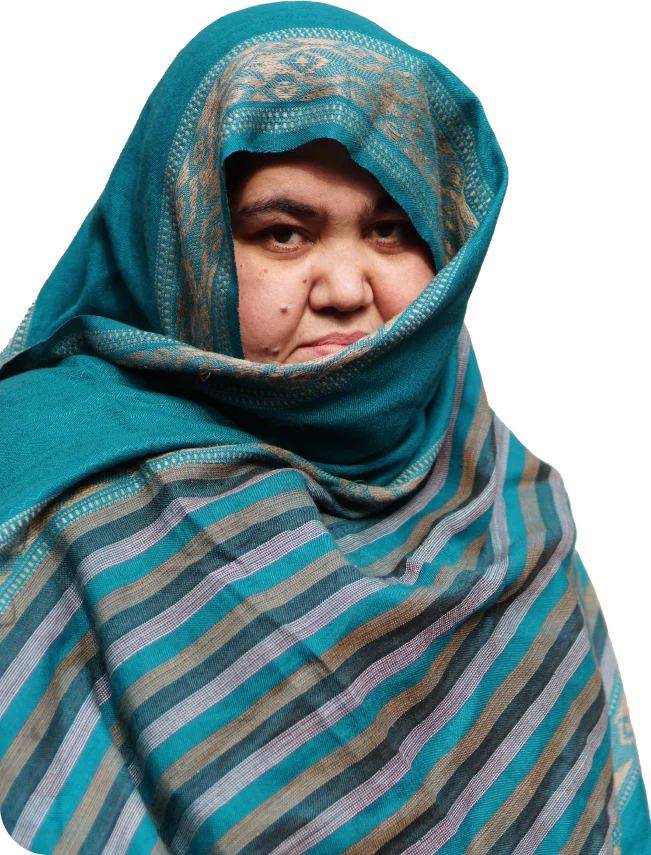Zakat Calculator
Calculate & Pay Zakat
Nisab to Use
Gold and Silver
Personal Assets
Liabilities
Nisab Threshold
Silver Nisab
(612.36) grams
£350.21
Gold Nisab
(87.48) grams
£4,509.65
*Nisab values are updated regularly
As mentioned above, nisab is the set minimum amount above which zakat becomes payable. The nisab is mostly determined on the basis of the current value of gold and silver. The Prophet Muhammad (SAW) set the nisab at a rate that is equivalent to 612.36 grams of silver, and 87.48 grams of gold.
Summary
Total Assests
£0
Total Liabilities
£0
Total Zakatable
£0
Zakat to Pay
£0
Your net wealth is below the Nisab, so you are not obligated to give Zakat at this time
Give Zakat, Sadaqah, Fidya, and Lillah.
Questions? Ask!

Make a Difference
100% Donation Policy
You contributions directly support those in need, not overhead costs, maximising your donations.
Gift Aid
Boost your donations by 25%! For every £1 you donate, the Government gives us an extra 25p.
Empowering
Spreading compassion in over 24 nations, we aim to end peoples’ dependency on aid.
Transparency & Trust
We maintain a clear policy regarding how donations are used, building trust and accountability.
Every Donation Ignites Hope
June 1, 2025
May 31, 2025
May 31, 2025
May 30, 2025

FAQs
Zakat, a mandatory annual contribution, is required from adult Muslims whose wealth surpasses the Nisab threshold for an entire Islamic (lunar) year. This act of giving is a means to seek Allah’s (SWT) favor. The funds collected are utilized to assist the neediest, both locally and globally.
Zakat donations have specific eligibility criteria; they cannot be indiscriminately given to anyone. For instance, a husband cannot allocate his Zakat to his wife or children, as he already bears financial responsibility for them. Conversely, a wife may give Zakat to her husband if he fulfils the necessary criteria, ensuring that she derives no direct benefit from this contribution, such as the husband using it to buy her a gift.
Recipients of Zakat fall into one of the following eight categories:
- The impoverished.
- The destitute.
- Zakat administrators, like United Muslims.
- Those seeking to reconcile hearts.
- Individuals in bondage or captivity.
- Those burdened with debt.
- Causes in the path of Allah.
- Travelers in need.
Zakat is not a universal obligation for all Muslims, as outlined in the Qur’an. Eligibility for paying Zakat requires one to be above the age of puberty, a practicing Muslim, of sound mind, not enslaved, and in possession of a wealth surplus that exceeds the Nisab threshold.
United Muslims is committed to ensuring that Zakat contributions are used for critical responses in emergencies within Muslim-majority communities and for specific development projects in these areas. Consequently, your Zakat can aid in providing emergency sustenance, refuge for displaced individuals, vocational training, medical assistance, and much more.
Nisab is the minimum amount of wealth a Muslim must possess to be obliged to pay Zakat. This threshold is based on the value of either gold or silver:
Gold: The value equivalent to 87.48 grams of gold.
Silver: The value equivalent to 612.36 grams of silver.
Since gold and silver prices fluctuate, the Nisab threshold varies accordingly. This variability makes tools like our Zakat calculator extremely useful, as they assist Muslims in determining not only their eligibility to pay Zakat but also the amount due. A Muslim’s wealth must surpass the Nisab limit for a complete Islamic year, or ‘Hawl’, which spans 354 days.
If your wealth falls below the Nisab threshold at any point during the Islamic year but remains above it at both the beginning and end of the Hawl, it’s advisable to consult your local imam for guidance.
Your obligation to pay Zakat arises when your wealth surpasses the Nisab threshold for an entire Islamic year, starting from the time your wealth initially exceeded this limit. The amount of Zakat due should be computed on the day you make your payment. Therefore, your Zakat is based on your current wealth status at the time of payment, regardless of any fluctuations in your wealth throughout the year.
The month of Ramadan is a favoured period for many Muslims to fulfil their Zakat, as donations during this sacred month are believed to bring increased blessings and rewards. However, you are free to pay Zakat at any point in the year, provided your wealth has been above the Nisab threshold for a complete lunar year. It’s important to differentiate this from Zakat al Fitr, or Fitrana, which is a separate obligatory charity that must be paid before the Eid prayers during Ramadan.
Your Zakat liability is determined by the following rates:
2.5% on personal wealth and yearly savings.
5% on the assets of a farmer who has paid for crop irrigation.
10% on the assets of a farmer whose crops have been naturally irrigated by rainfall.
20% on valuable resources found on one’s property, like gold, silver, and oil.
Your Zakat obligation is based on your accumulated wealth, encompassing personal assets and liquid funds. Zakat is due on assets that are not essential for your daily living. For example, your primary residence is exempt, but a secondary property that you don’t live in should be counted in your Zakat calculation. Similarly, while your primary vehicle is considered a necessity and exempt, a second car, deemed a luxury, should be included.
Assets to consider for Zakat calculation include:
- Cash, whether kept at home, in banks, or in savings accounts.
- Savings set aside for specific purposes (like Hajj, property deposits, weddings, etc.).
- The current value of any gold and silver you own.
- Stocks and shares in your possession.
- Revenue from rental properties (like a second home).
- The value of debts owed to you that you expect to be repaid (e.g., money lent to friends or relatives).
When calculating Zakat, do not take into account:
- Payments scheduled for the month in which you are paying Zakat.
- Debts you owe, such as mortgage/rent payments, credit card debts, and personal loans.
- Possessions like household appliances and clothing.
- Business-related expenses, including bills, salaries, rents, and rates.
- Business loans and overdrafts.
You have the option to fulfil your Zakat obligation through instalment payments, although it is preferable to make a single lump-sum contribution. If you are confident that your wealth will remain consistent, you can choose to pay in advance of the due date.
Zakat al Fitr, also known as Fitrana, is a distinct contribution separate from Zakat. It is exclusively observed during the sacred month of Ramadan, prior to the commencement of Eid. Traditionally, Fitrana is presented in the form of food, but United Muslims also welcomes monetary contributions, valued at £4 per person in the UK. These funds are directed towards providing essential food assistance to those in dire need.
To effortlessly determine your Zakat charity amount, kindly utilize our Zakat Calculator available on our website.
After calculating your Zakat or knowing your owed amount, you have the option to make your donation through United Muslims. Your contribution will bolster our humanitarian efforts, making a significant impact on the lives of thousands living in poverty worldwide.
Residential property used for personal purposes is excluded from Zakat obligations. Zakat does not pertain to a primary residence where you reside with your family.
You can authorize a charitable organization to distribute your Zakat to deserving recipients on your behalf, and it is permissible to do so.